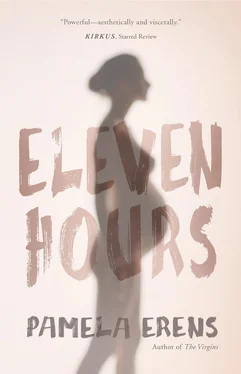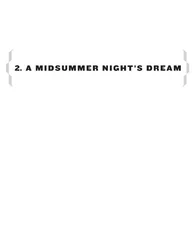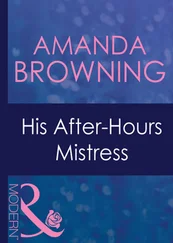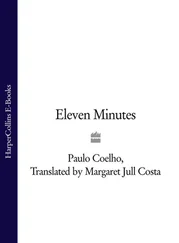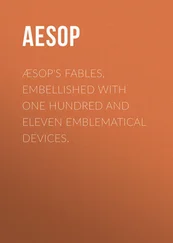Pamela Erens - Eleven Hours
Здесь есть возможность читать онлайн «Pamela Erens - Eleven Hours» весь текст электронной книги совершенно бесплатно (целиком полную версию без сокращений). В некоторых случаях можно слушать аудио, скачать через торрент в формате fb2 и присутствует краткое содержание. Год выпуска: 2016, Издательство: Tin House, Жанр: Современная проза, на английском языке. Описание произведения, (предисловие) а так же отзывы посетителей доступны на портале библиотеки ЛибКат.
- Название:Eleven Hours
- Автор:
- Издательство:Tin House
- Жанр:
- Год:2016
- ISBN:нет данных
- Рейтинг книги:4 / 5. Голосов: 1
-
Избранное:Добавить в избранное
- Отзывы:
-
Ваша оценка:
- 80
- 1
- 2
- 3
- 4
- 5
Eleven Hours: краткое содержание, описание и аннотация
Предлагаем к чтению аннотацию, описание, краткое содержание или предисловие (зависит от того, что написал сам автор книги «Eleven Hours»). Если вы не нашли необходимую информацию о книге — напишите в комментариях, мы постараемся отыскать её.
Eleven Hours
Eleven Hours — читать онлайн бесплатно полную книгу (весь текст) целиком
Ниже представлен текст книги, разбитый по страницам. Система сохранения места последней прочитанной страницы, позволяет с удобством читать онлайн бесплатно книгу «Eleven Hours», без необходимости каждый раз заново искать на чём Вы остановились. Поставьте закладку, и сможете в любой момент перейти на страницу, на которой закончили чтение.
Интервал:
Закладка:
“But not like that anymore, of course,” he told Lore. When had this been? Four months after the Greek restaurant and the kiss at the door? Six? Perhaps it was not even a lie then. “Besides,” he said, “now there’s you —” and he kissed her throat so gently that it sent tremors down her thighs and into her toes.
She did not in fact believe that he did not still want Julia like that . He was a man, after all. But she believed — she thought she saw, in his behavior toward her, and toward Julia when they were all together — that they had long ago put an end to it. His ardor left nothing to be desired. In bed he was frank and appreciative. It was hard at times to believe that he and Julia had ever been lovers at all. Julia was so fragile, so brittle even (when she was not well she did not eat much, and became quite thin and wan); how could robust Asa ever have made love to her without breaking her?
Asa said he understood now what adult love could be. Something where two people did not merge so completely that they had trouble figuring out where one ended and the other began, but rather the joining of two strong, separate beings, creating a future rather than trying, over and over, to redo the past.
“You’re not afraid of us all continuing to be friends?” he asked, and Lore answered, Why should she be afraid? She adored Julia, and besides — so there! — she had been Julia’s friend before she was his lover. If she had to choose, she teased, she might choose Julia over him. With whom did she go out more, to museums and to movies, for a good glass of wine (Asa was so cheap and so serious; he would rather spend the evening reading about hydroelectric dams) — with whom, to be blunt about it, did she laugh more? Julia, she told him. You better watch your step.
Lore halts and puts her hand against the wall. She has been moving too fast and has lost her breath. She had given Asa and Julia two months once she moved out. Julia would not be able to tolerate Asa’s exclusive devotion, would start as always to chafe at his dependence on her. They would implode by the summer. But just before Thanksgiving, a friend saw them going into a movie on 23rd Street, clasping hands. Lore surprised herself, upon hearing this, by the melancholy she felt for them. What would become of them? Julia, with her dark moods, her terror of ever possessing what she wanted. Asa, with his longings for family life. Julia would never have children, she’d said it many times, and her therapists also advised against it. And now she, Lore, was the one who — though betrayed, though humiliated — would have a family, who had new life growing in her.
Whom did she miss more? Whom had she loved more, Asa or Julia? Or had she only been able to love them as a pair? “I’ve never really loved anyone,” Julia said, one unusually warm early-spring day as they sat in Central Park. Lore was shocked. Julia held a bag of broken Saltines, which she was sprinkling before the pigeons. She said she’d lived in New York City for twenty-nine years and she’d never fed the pigeons. Ever since she was little and had seen the movie Mary Poppins she’d wanted to feed them, like the old bag lady on the steps of St. Paul’s, but no one in this city ever did. Well, she was going to feed them now. She held the bag out to Lore so she could join in. The dark, plump bodies swarmed toward them, shoving and pecking at each other, uttering strident cries.
“People are right,” Julia said. “They’re disgusting.” A pigeon climbed onto her sneaker and she flung it away. “Ugh!”
“You love Asa,” Lore insisted. She was frightened. What did Julia mean, she didn’t love anyone? Was she just having one of her days? Was this the first hint of a depression coming on? But Julia had seemed cheerful enough walking over to the park.
Julia turned to look at Lore seriously. “I don’t know. I’m not sure I’m built for love.”
“I don’t know what that means,” said Lore.
“That’s why you’re so great. You don’t.” Julia nudged at another pigeon to keep it from attacking her ankle. “Maybe,” she said, staring at her skirt — it was striped, red and white, flared, Lore will never forget—“Maybe the closest I’ve ever come is with you.”
Lore swallowed a sweet lump in her throat. She was quiet for several minutes and finally she and Julia got up and walked on toward Bethesda Terrace. The next time they spoke it was about a painting Julia was working on, a technical problem she was trying to solve involving the use of a deep purple and an external source of light (but Julia almost never showed even Lore or Asa her paintings, and rarely finished them; they never pleased her).
That evening something odd happened. Lore began to ask herself if she really loved Asa as she’d believed. If even Julia did not love him, had never loved him, could what she felt possibly count as love? She ran through scenes of their days together, probing what had been behind her actions, the things she’d said to him: had it been real feeling or just habit, had she ever been faking? After twenty-four hours of this she was convinced she was developing one of those obsessive thought disorders, and she put a firm stop to it with a big glass of wine and an evening planted in front of Law & Order and CSI .
About what Julia had said — about maybe loving her — she could not think at all, it pierced her too nearly, too beautifully.
Of course it had all been bullshit. Julia and Asa had been sleeping together for two years by then. Julia had stared down at her skirt because she didn’t have the gall to look into Lore’s eyes when she was lying. She’d said what she’d said — about Asa, and her feelings for Lore — to generate those obsessive, doubting thoughts, to destabilize what Lore and Asa had.
But Lore knows that is not really it, or not all of it. She believes — she will always believe — that Julia did love her, that she looked down into her lap out of shyness. It is not something she will ever be able to prove, to herself or anyone else, but she can feel again the warmth of Julia’s skin in the spring sunlight, the naturalness of their bodies on the bench together, the way Julia looked at her when she spoke about love, calm and serious and troubled all at once. Julia meant what she said about Lore, at that moment. She meant it again at other times without saying it. Lore can feel the wind brushing her hair, the shrieking of the pigeons, the sweat of her feet in the heavy socks she’d put on that morning, the fresh and mossy smell reaching them from the lake. Oh, God!
A tug in a different place, starting right under the belly button, pulling down like a stuck trapdoor. Lore breathes deeper and walks quickly to the next Women’s she sees, darts inside. She lowers herself onto the toilet, shifting briefly to center her weight, and reminding herself of Franckline’s instructions. Breathe down into the belly. Let the voice out. But the pressure has already disappeared. Lore waits expectantly; a minute passes, then another. Where did the pain go? She curses. Pain for nothing, panic for nothing. She wipes herself, in case, and uses the metal bar on the right of the toilet to pull herself up. When was the last contraction? It seems like ages ago. Why all this waiting, when things are supposed to keep speeding up? She wants the speed, the pain, the progress. She ties her gown.
Without quite meaning to, she has roamed far. She washes her hands, pulls open the heavy door. She must go back, back to room 7. Franckline’s face swims up before her. Come get me, Franckline, she thinks. Come find me. Come help me, come make it all easier. She sees herself leaning on the tall woman’s shoulder, making her way with frail supported steps. Oh, come off it, she scolds herself. She is a strong, healthy woman of thirty-one, willful and able. (The image of leaning on Franckline was absurd: in it she was elderly, fragile, in no way herself.) She dislikes these daydreams of weakness that occasionally come to her. She used to imagine doing what Julia did: staying in bed for days on end, neglecting to eat or wash. Asa used the word “times”—Julia was having one of her times. He also said depression , and once in a while he floated bipolar . All this was terrible, of course — Julia suffered — yet it was a freedom allowed to her, Lore thought, to surrender so completely. The café where she waitressed paid her when she worked and let it go when she didn’t, Julia’s father sent checks to tide her over, and her friends brought soups and conversation. The therapist she saw twice a week (also paid for by her father) spoke with her, if she could not get out of bed, by phone.
Читать дальшеИнтервал:
Закладка:
Похожие книги на «Eleven Hours»
Представляем Вашему вниманию похожие книги на «Eleven Hours» списком для выбора. Мы отобрали схожую по названию и смыслу литературу в надежде предоставить читателям больше вариантов отыскать новые, интересные, ещё непрочитанные произведения.
Обсуждение, отзывы о книге «Eleven Hours» и просто собственные мнения читателей. Оставьте ваши комментарии, напишите, что Вы думаете о произведении, его смысле или главных героях. Укажите что конкретно понравилось, а что нет, и почему Вы так считаете.
